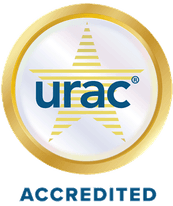Mail-Order Markups by Big PBMs Drive Up Drug Costs for Employers
Written by
SmithRx
Jul 9, 2024
A recent Wall Street Journal Article highlighted how many businesses that turned to mail-order pharmacies to reduce employee drug costs, expecting savings from bulk purchasing and 90-day supplies, are finding that this strategy is unexpectedly leading to higher costs.
It’s disappointing, but not surprising, to see yet another way Big Health (and the big 3 PBMs and pharmacies they own) is using vertical integration to boost their profits at the expense of businesses and patients.
What Brokers and Plan Sponsors Should Watch Out For
Sharply Rising Drug Plan Costs: Health care costs are generally on the rise and that drug costs typically make up an increasingly large and quickly growing percentage of the total health care expenditure for plan sponsors. The Wall Street Journal article shares examples of employers, like Unity Care NW in Washington state, that are seeing significant cost increases. Unity Care forecasts a 25% rise in medical and drug benefits costs this year, driven by high markups on mail-order drugs. If you’re seeing as high as 20 - 30% increases and you’re uncertain of the cause, it most certainly warrants a deeper look into your contract (if your CFO hasn’t already asked for that).
Price-markups for mail-order pharmacies: While mail-order pharmacies typically can’t supply all types of medications, their low overhead, bulk purchasing, 90-day supply, and direct to consumer model should make them the lower cost option for many types of medications. However, the Wall Street Journal article cautioned that some mail-order pharmacies, especially those owned by Pharmacy Benefit Managers (PBMs), are marking up drug prices significantly. If you’re seeing markups as much as 35 times higher than those at traditional pharmacies or higher drug costs with mail-order despite a decline in percentage of mail-order prescriptions, you should be asking your PBM why.
Preferential pharmacy treatment: Most PBMs offer access to a broad array of pharmacies. While not every single pharmacy may be included in their network, patients should have convenient options both mail-order and retail to utilize their benefits. Some employers do opt to prioritize specific pharmacies for their members but if you find your PBM limiting access to pharmacies they own or owned by their parent company or penalizing members for using some pharmacies, it may warrant a closer look.
Costs to access your data: One thing we’re seeing with increasing frequency is PBMs charging employers to access their claims history and cost data. We believe your claims history should be yours and that you should not be charged to see that data
Choosing a Conflict-Free PBM is the First Step
The Wall Street Journal (and many other news outlets) cite PBM conflicts-of-interest as one of the causes of sharp increases in drug prices. Many traditional pharmacy benefit managers own their own mail-order and specialty pharmacies (and in the case of CVS, retail networks as well). Increasingly, PBMs or their parent companies are also acquiring or investing in other providers in the value chain. The issue comes when they prioritize their owned businesses, preventing fair competition and driving profits to themselves at the expense of employers and patients.
The Wall Street Journal advises (and we agree) that employers should scrutinize PBM contracts and consider alternative PBMs that seek to transparently and effectively manage drug costs. To do that, brokers and employers should use a cost-based evaluation compared to the broken discount-based evaluation that, until now, has been the only option.
Curious to know how much switching to a cost-based PBM could save you? Use your claims data to request a repricing analysis. If you’re interested in learning more about SmithRx, email us at sales@smithrx.com.

Written by
SmithRx
SmithRx is the #1 Modern PBM, relentlessly focused on eliminating the conflicts and complexity of legacy pharmacy benefits. Built on radical transparency and fiduciary alignment, we empower employers to take control of their pharmacy spend and experience with our 100% pass-through model.





